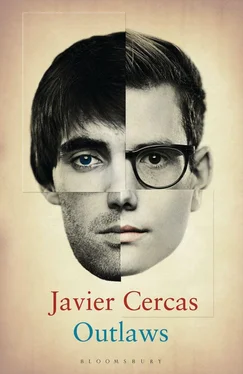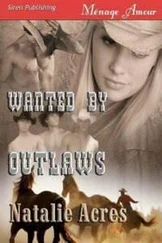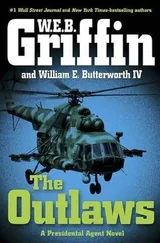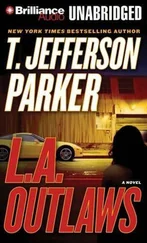‘I thought he was joking; I looked him in the eye: he wasn’t joking. I asked him what he meant. Then he started to tell me about his life: he told me he hadn’t been born in Gerona but he’d been living in Gerona for almost forty years and that he often thought that, had he not ended up in this city, his life would probably have been a disaster, in any case it would have been much worse than it had been. And do you know why I ended up here? he asked. Without waiting for an answer he raised one of his hands and pointed towards the centre of the plaza. For that, he said. I looked in the direction he was pointing and asked: For the statue? For General Álvarez de Castro, he answered. For the siege of Gerona. Do you know there’s a novel by Galdós about it? Sure, I said. He asked me if I’d read it and I said no. I have, he said. Twice. The first time was many years ago, when I was eighteen and doing my practical training in Madrid. The book made a big impression on me, I thought it was a great war novel, and that Álvarez de Castro was a fabulous hero. So, when it came time to choose a posting, I decided to come here: I wanted to see the city, wanted to get to know the city where Álvarez de Castro had fought, or Álvarez de Castro’s men, I don’t know. Inspector Cuenca then told me that a few weeks earlier, exactly when he was talking to you about his relationship with Zarco, he’d mentioned the Galdós novel and what it had meant to him, and having done so piqued his curiosity and he reread it. And do you know what? said Inspector Cuenca, turning once again towards me. I thought it was shit; rather than a novel about war it seemed like a parody of a war novel, an affected, gruesome and pretentious thing set in a cardboard-cut-out city where only cardboard-cut-out people live. And as for Álvarez de Castro, Inspector Cuenca also said, Frankly: he’s a disgusting character, a psychopath capable of sacrificing the lives of thousands of people in order to satisfy his patriotic vanity and not surrender an already defeated city to the French. Anyway, Inspector Cuenca concluded, after I finished reading the book I remembered that I once heard a professor on TV say that a book is like a mirror and that it’s not the person who reads the book but the book that reads the person, and I thought it was true. I also said to myself: Damn, the best thing that happened in my life happened to me due to a misunderstanding, because I liked a horrible book and because I thought a villain was a hero. Inspector Cuenca fell silent; then, without taking his eyes off me, looking at me with infinitely ironic mischief, with absolutely serious irony, he asked: How do you like that?
I thought over my reply, or rather pretended to be thinking it over. I was actually thinking that it wasn’t Tere who had lied to me but Inspector Cuenca, and that the inspector was telling me all that to distract me from the fundamental issue, to continue protecting his confidante more than thirty years after she’d confided in him. For a moment I wanted to persist, carry on the interrogation, but I remembered my last conversation with Tere and told myself it made no sense: La Font and Rufus and the district had disappeared decades ago, and Inspector Cuenca and I were nothing but two relics, two charnegos from back when charnegos still existed, an old cop and an old gang member turned shyster sitting on a bench in the late afternoon like two pensioners talking of a vanished ruined world, of things nobody in the city remembered any more, and that didn’t matter to anybody. So I chose to let it go, to keep quiet, not to keep asking: I didn’t know if it was Tere who had told me the truth and Inspector Cuenca who lied, or if it was Tere who had lied and Inspector Cuenca who was telling the truth. And, since I didn’t know, I couldn’t know if Tere had loved me or not, or if she had only loved me in an occasional and conditional way, while she had loved Zarco permanently and unconditionally. Actually, I said to myself then — and I was surprised I’d never thought it before — I didn’t even know how Tere had loved Zarco, because I had no proof that Tere and Zarco were sister and brother and that Tere hadn’t lied to me years before, in my office, telling me they were, to convince me to keep helping Zarco up until the end; actually, I said to myself then, I didn’t even know either if, supposing it was true that Tere and Zarco were sister and brother, after finding out the real kinship between them that Tere had loved Zarco in a different way than she’d loved him before knowing it. I didn’t know anything. Nothing except that it wasn’t true that everything slotted into place in that story, and that there was an infinitely serious irony in it or an absolutely ironic mischief or an enormous misunderstanding, like the one Inspector Cuenca had just told me about. And I also thought that after all perhaps it wasn’t the end of the story, that perhaps not everything that had to happen to me had happened and that, if Tere came back again, I’d be waiting for her.
‘I looked out of the corner of my eye at Inspector Cuenca, and said to myself that in spite of his air of a sad tortoise and disillusioned old man he was a fortunate man. I thought it but I didn’t tell him. The question I’d asked him remained unanswered and we sat there in silence for a while, enduring the sun on our faces, watching through half-closed eyes the urban hustle and bustle of Sant Agustí in front of General Álvarez de Castro. Until at some point I stood up and said: Well, now can I buy you a coffee? Inspector Cuenca opened his eyes wide, as if my question had woken him up; then he sighed again, stood up as well and, as we started across the plaza towards the Royal, said: If it’s all the same to you, let’s have a beer.’
This novel would not have been possible without the collaboration of Francisco Pamplona and, especially, Carles Monguilod, whose book Vint-i-cinc anys i un dia was one of the initial spurs to this story. Aside from them, Carmen Balcells and David Trueba read a draft and provided extremely useful observations. I’ve borrowed from Antony Beevor an expression I heard him use over dinner in London, one evening in the winter of 2011. What the books I’ve written over the last twenty-five years and I owe to Jordi Gracia would never fit in an acknowledgments note. I am also in debt to the following books: Hasta la libertad , by Juan José Moreno Cuenca; Historia del Julián , by Juan F. Gamella; Els castellans , by Jordi Puntí; Quinquis dels 80: Cinema, prensa i carrer , by various authors; and Memòries del barri xino , an unpublished manuscript by Gerard Bagué. I’d also like to thank Joan Boada, Josep Anton Bofill, Antoni Candela, Emili Caula, Jordi Caula and Narcís Caula, Jordi Corominas, Mery Cuesta, Daniel de Antonio, Tomás Frauca (not Franca), Pepe Guerrero, Ramón Llorente, Llorenç Martí, Puri Mena, Mariana Montoya, Isabel Salamanya, Carlos Sobrino, Robert Soteras, Guillem Terribas and Fernando Velasco.
I would like to thank Nika Blazer, Jim Smith and Ben Ward for their helpful suggestions and discussions.
Javier Cercas was born in 1962. He is a novelist, short-story writer and columnist, whose books include Soldiers of Salamis (which sold more than a million copies worldwide, won six literary awards in Spain and was filmed by David Trueba), The Tenant and The Motive, The Speed of Light and The Anatomy of a Moment , which won Spain’s National Narrative Prize. He taught at the University of Illinois in the late 1980s and for many years was a lecturer in Spanish literature at the University of Gerona. His books have been translated into more than thirty languages. In 2011 he was awarded the International Prize of the Turin Book Fair for his oeuvre. He lives in Barcelona.
Читать дальше












